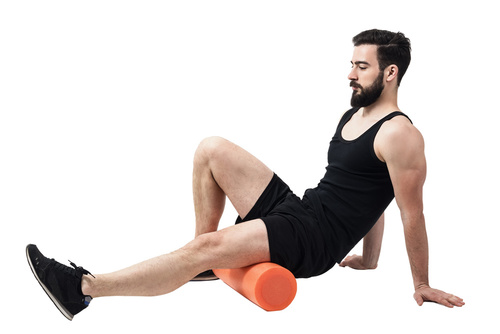Alberta Sleep Quality
While 71% of Albertans report meeting daily sleep recommendations, 25% rate their sleep quality as fairly bad to very bad, according to the 2019 Alberta Survey on Physical Activity. Sleep behaviour is an important determinant of health and wellbeing, with impacts on neural development, learning, memory, emotional regulation, metabolic health, and cardiovascular health.
Psychological Load
Research points to the impact of psychological stressors on performance. Whether emotional stress or high cognitive processing demands, “psychological load” must be considered by coaches and trainers to achieve peak performance. Learn more in this SIRCuit article.
Balancing Psychological Load: New Perspectives on Recovery
Current views on recovery Recent research by Nash and Sproule (2018) asked coaches for their views on recovery in training. While recovery was widely understood as crucially important, results revealed that few coaches think about psychological and cognitive recovery with the same depth and importance as the physical aspects of recovery. One reason for the…
ACL Injury Recovery
Reconstruction surgery has become a viable method for athletes to return to play after suffering an ACL injury, yet one third of patients will develop osteoarthritis within 10 years. Researchers have found that the way a patient moves after surgery has significant implications for their long-term recovery. Patients who reported lingering symptoms post-surgery were found…
Periodization: Planned Peaks and Targeted Training
Periodization is a systematic approach to training that involves varying training variables, like volume and intensity, over time. The objective of this planning is for the athlete to reach his or her peak at a specific, pre-determined time, while optimizing recovery to avoid overtraining and injury. Periodization is based on Hans Selye’s theory of biological…
Rolling out the benefits of Foam Rollers

Foam rollers have become pretty mainstream over the last few years. Athletes swear by this piece of equipment to help keep muscles loose and limber, and to help in muscle recovery and increased performance. Every day fitness goers are also picking up this piece of equipment to help ease muscle soreness. So what is it…
Being Smart about Concussions
Concussion continues to be a very hot topic in sport these days. In fact, the Governor General spent a full day in December 2016 hosting a conference with former professional athletes, Olympic and Paralympic athletes, the medical community, and the sport community at large, discussing concussions in sport and how we can do better for…
Need to Know Facts about Concussions
A concussion is a common head injury, also known as a Mild Traumatic Brain Injury (MTBI). It is an injury that is caused by the brain being shaken around inside the skull after a direct blow to the head, or a sudden jerking of the head or neck when the body is hit. There is…
Highlights: Consensus statement on concussion in sport – the 5th International Conference on Concussion in Sport

Concussion is one of those topics in sport that has been increasing in prevalence over the last few years. It is most likely that concussion injuries have existed for a long time, however, the awareness of their symptoms, presentation and management have been largely hidden from the mainstream. High profile athletes who have shared their…
Sport Injury – Healing the Mind and Body
Most athletes, competitive through recreational, experience injury in their sport at some time. There are many practitioners out there who can help heal the physical symptoms of the injury from the family doctor to the physical therapist. But dealing with the physical side of injury is only half the battle. What we cannot forget to address…